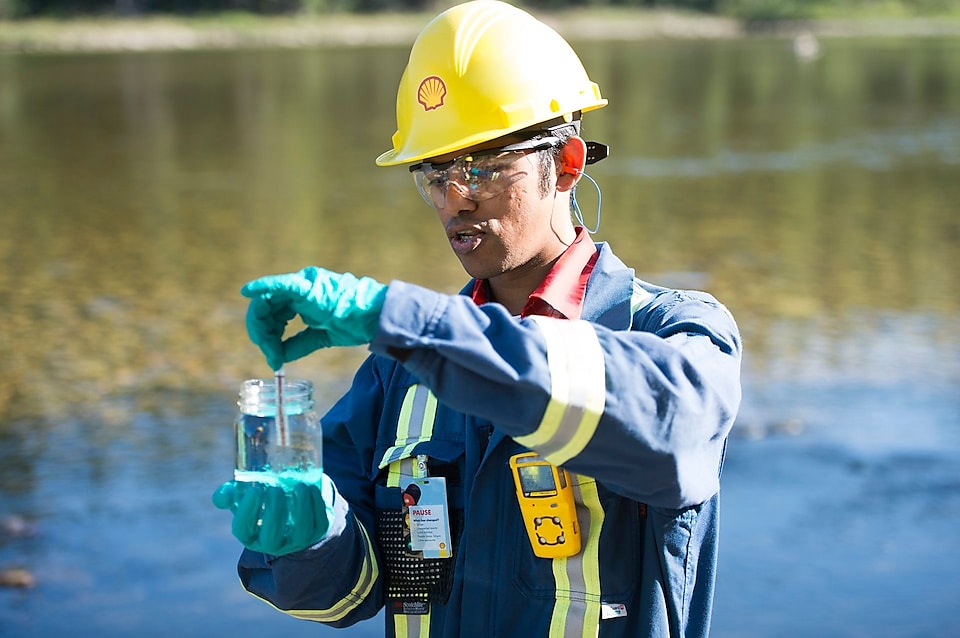
Improving access to clean water
How a community-run project is bringing clean water to a village in India.
Watch the film on Inside EnergyFresh water is vital to human life as well as the planet. It is also one of the most important of our environmental standards. We manage our use of water carefully and invest in new approaches and technologies to use it more efficiently.

The availability of fresh water is a growing challenge in some parts of the world. It is important that society – along with Shell and others in the oil and gas industry - protects and preserves this valuable resource and manages its use in a responsible and sustainable way.
We design and operate our facilities to help reduce their fresh water use. We manage our water use carefully, and we tailor our use of fresh water to local conditions because water constraints affect people at the local or regional level.
In water-scarce areas, we develop water management plans for our facilities. These plans describe the long-term risks to water availability and define measures to minimise our use of fresh water or recommend alternatives to fresh water, such as recycled water, processed sewage water and desalinated water.
For example, at our gas-to-liquids (GTL) plant in the Qatari desert, we clean and reuse industrial process water. This means that we avoid using the country’s scarce natural water resources.
On Pulau Bukom, a small island south of Singapore - a country with limited water supplies - we use recycled water and converted sea water for steam generation at our refinery and we reuse our process water. This means we rely less on water from mainland Singapore, which frees up resources for use by local residents.
Technology helps us to improve water efficiency within our own operations. Our global virtual water community connects Shell’s water experts globally to share experiences. We work in collaboration with top universities and global technology companies, as well as with organisations such as the World Business Council for Sustainable Development and IPIECA, the global oil and gas industry association for advancing environmental and social performance.
For example, we are working with Wetsus, one of the top water research organisations in the Netherlands, on the development of advanced technologies to increase recycling and reuse rates.
Adapting to climate change and creating green infrastructure

How a community-run project is bringing clean water to a village in India.
Watch the film on Inside Energy
We take steps to manage our use of water responsibly – including looking for beneficial ways to recycle and reuse this valuable resource.
Read how we manage water responsibly
In the Omani desert, reed beds are being used to naturally clean water produced as oil extracted, before it evaporates.
Find out more about Nimr reed beds
We work with a Canadian city to treat waste water which goes on to boost natural gas production.
See how we reclaim water in Dawson CreekWe take steps to reduce airborne pollutants from our operations and help customers reduce their impact on air quality by using our products.
Our projects can affect local natural habitats and communities that depend on them. Read about our work on biodiversity around the world.
Water is a resource that is hard to come by in Qatar’s desert climate. The Pearl GTL plant produces more water than gas-to-liquids products.
See how ocean scientists are using energy industry technology to reveal life in deep water.
Restaurants recycle oyster shells to help restore reefs and coastal wetlands in Louisiana.